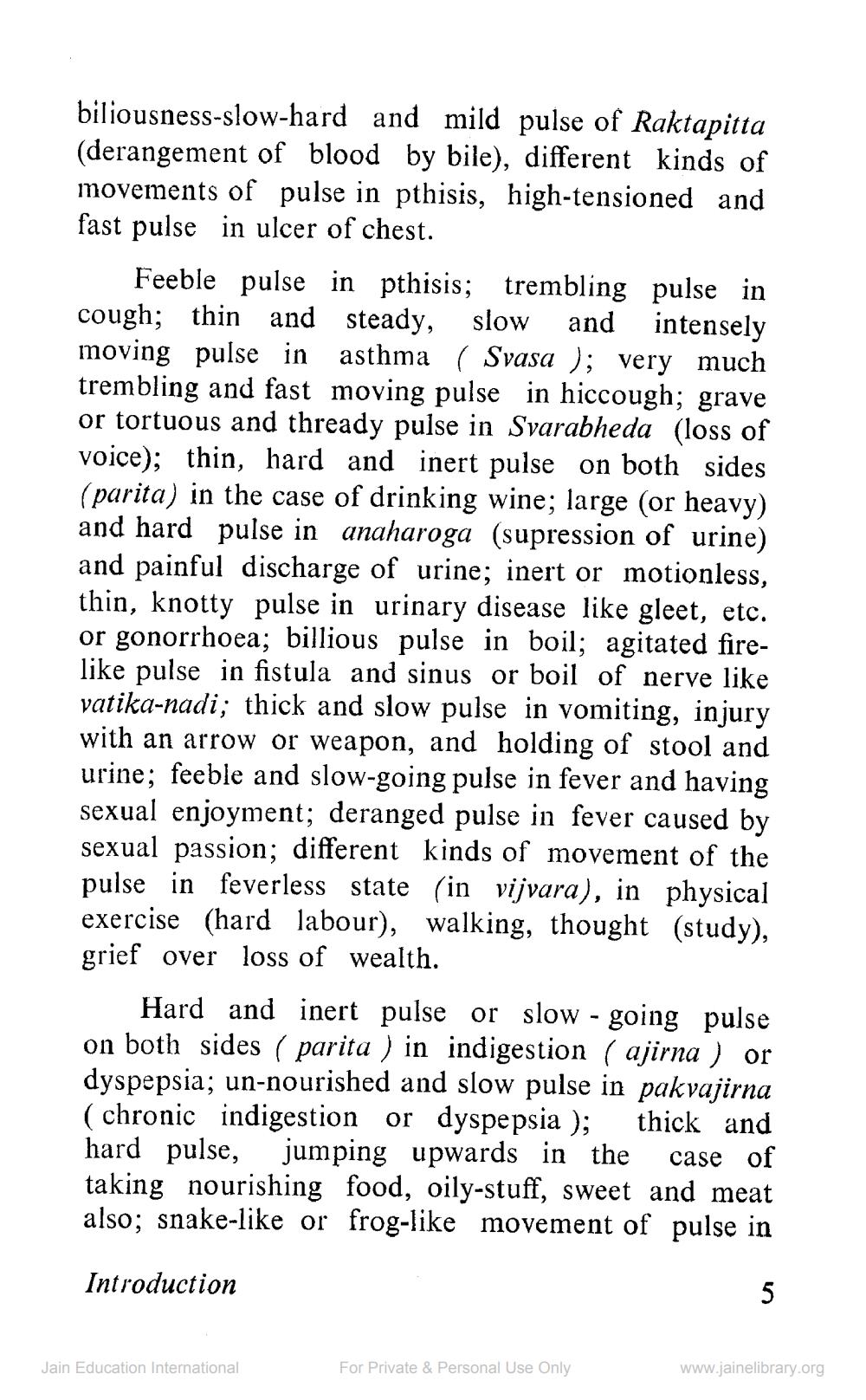________________
biliousness-slow-hard and mild pulse of Raktapitta (derangement of blood by bile), different kinds of movements of pulse in pthisis, high-tensioned and fast pulse in ulcer of chest.
Feeble pulse in pthisis; trembling pulse in cough; thin and steady, slow and intensely moving pulse in asthma ( Svasa); very much trembling and fast moving pulse in hiccough; grave or tortuous and thready pulse in Svarabheda (loss of voice); thin, hard and inert pulse on both sides (parita) in the case of drinking wine; large (or heavy) and hard pulse in anaharoga (supression of urine) and painful discharge of urine; inert or motionless, thin, knotty pulse in urinary disease like gleet, etc. or gonorrhoea; billious pulse in boil; agitated firelike pulse in fistula and sinus or boil of nerve like vatika-nadi; thick and slow pulse in vomiting, injury with an arrow or weapon, and holding of stool and urine; feeble and slow-going pulse in fever and having sexual enjoyment; deranged pulse in fever caused by sexual passion; different kinds of movement of the pulse in feverless state (in vijvara), in physical exercise (hard labour), walking, thought (study), grief over loss of wealth.
Hard and inert pulse or slow - going pulse on both sides ( parita ) in indigestion ( ajirna ) or dyspepsia; un-nourished and slow pulse in pakvajirna (chronic indigestion or dyspepsia ); thick and hard pulse, jumping upwards in the case of taking nourishing food, oily-stuff, sweet and meat also; snake-like or frog-like movement of pulse in
Introduction
For Private & Personal Use Only
Jain Education International
www.jainelibrary.org




